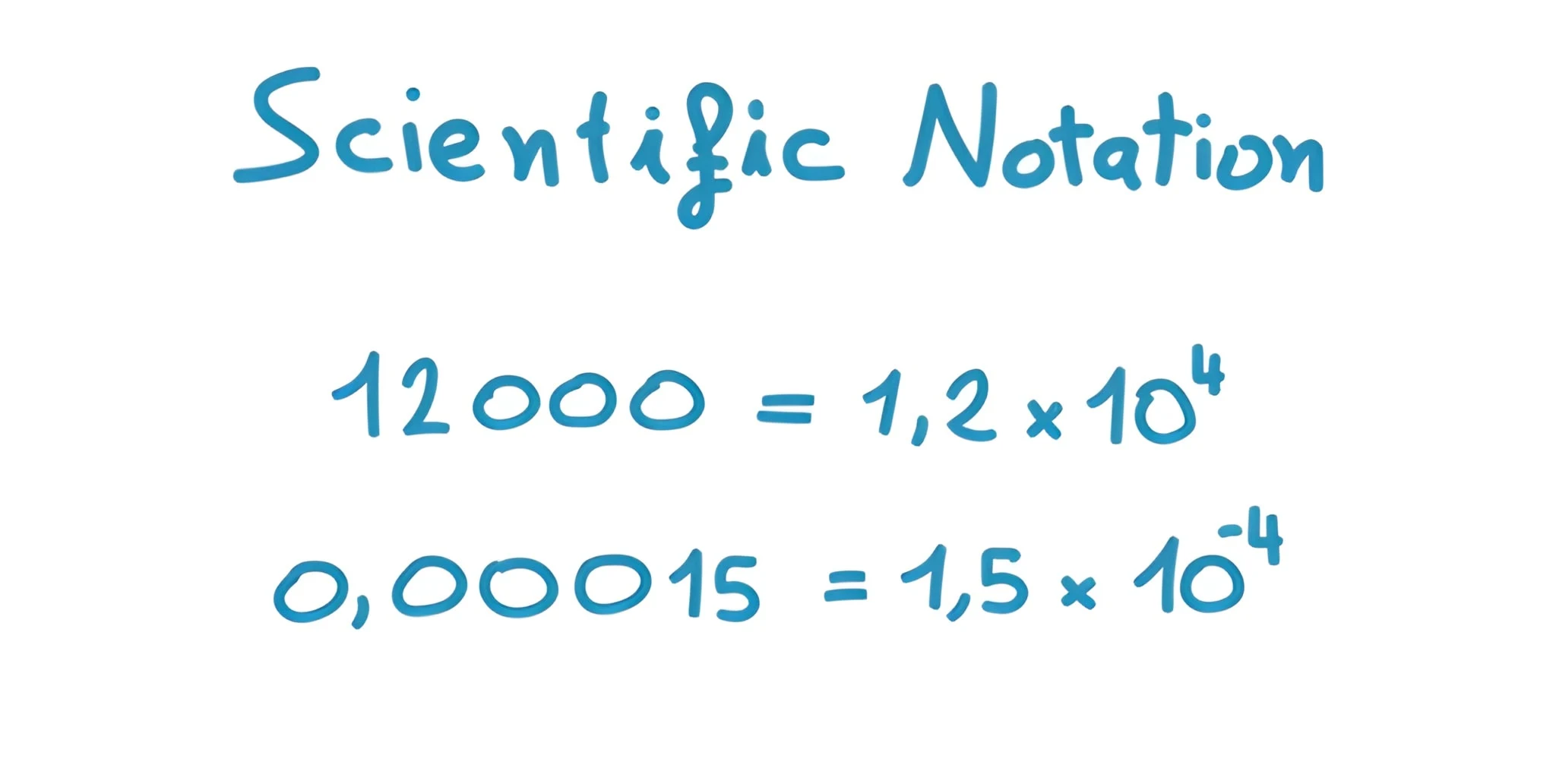Standard Form Calculator - Scientific Notation Converter
Convert between standard form (scientific notation), e-notation, and decimal form. Perfect for scientific calculations, engineering, and working with very large or very small numbers.
Enter regular numbers like 123000 or 0.000456
Calculation Results
Enter a number and click Convert to see standard form conversion
Related & Other Popular Calculators
The standard form calculator is an easy-to-use online tool that will instantly convert a number from decimal form to standard form (scientific notation), and vice versa. If you are solving a mathematics standard form equations, or in engineering and need to work out a problem involving a very large or very small number easily, then this calculator will do it for you quickly and accurately.
This Standard Form Calculator can convert numbers of any kind - whether whole numbers, decimals or with negative exponents. It is easy to convert decimal to standard form, or standard form to decimal, with just the click of a button, which makes it an excellent standard notation calculator for students, teachers and professionals to quickly verify their calculations.

What is standard form?
Standard form (also known as scientific notation) is a way of writing very large or small numbers in a format that is easier to read. The standard form equation is written as follows:
a x 10b
Here:
For example, 123,000 can be written in standard notation as 1.23 × 10⁵.
This makes it easier to handle complex or lengthy numbers in physics, astronomy, chemistry, and everyday mathematics.
How to use the Standard Form Calculator
Follow these simple steps to convert numbers using our Standard Form Calculator:
Our standard notation solver automatically adjusts coefficients and exponents for both very large and very small numbers.
Why use our Standard Form Calculator?
This standard notation calculator is perfect for your needs in whether your level of math is for physics, chemistry, or general purposes. It is incredibly accurate and can save you a lot of time.
Examples of Standard Form Conversion
| Decimal Number | Standard Form | E Notation |
|---|---|---|
| 123000 | 1.23 x 10⁵ | 1.23e+5 |
| 0.000456 | 4.56 x 10⁻⁴ | 4.56e-4 |
| 54000000 | 5.4 x 10⁷ | 5.4e+7 |
| 0.0032 | 3.2 x 10⁻³ | 3.2e-3 |
Each example of standard form shows how the calculator breaks down decimal values into easy-to-read standard notation.
Applications of Standard Form in Mathematics
The mathematics standard form is used in scientific and analytical fields to present values that are too large or too small to be presented conveniently in decimal form.
You'll find standard form equations in:
Our standard form calculator ensures these conversions are always accurate and formatted correctly.
Features of Standard Form Calculator
The Standard Form Calculator by SantPro Tools makes mathematical conversions simple, accurate, and instant. Whether you’re learning the mathematics standard form, solving equations, or working on scientific data, this standard notation calculator is the perfect tool to understand and compute standard form equations with ease.
Use it today to master standard notation and make every example of standard form crystal clear!
FAQs
A Standard Form Calculator is used to convert numbers between decimal and standard notation (scientific form). A standard form calculator is a useful tool for representing very large numbers or very small numbers in mathematics or scientific calculations.
To write a number in standard form, you will need to move the decimal point so the coefficient is between 1 and 10. Once you have done that move the decimal point as many times as you need, that will become the exponent of 10. Example: 123000 = 1.23 x 10⁵.
There's no distinction, as both standard form and standard notation describe numbers as a coefficient multiplied by ten raised to a power (a x 10^b).
Yes, this standard notation solver can process and simplify standard form equations, providing step-by-step guidance for accurate calculations and understanding.
No. While mathematics standard form is common, it's also used in scientific, engineering, and financial fields where large or small numbers are frequent.
Certainly. The Standard Form Calculator can work with negative numbers, decimals, and exponential values for the utmost convenience.